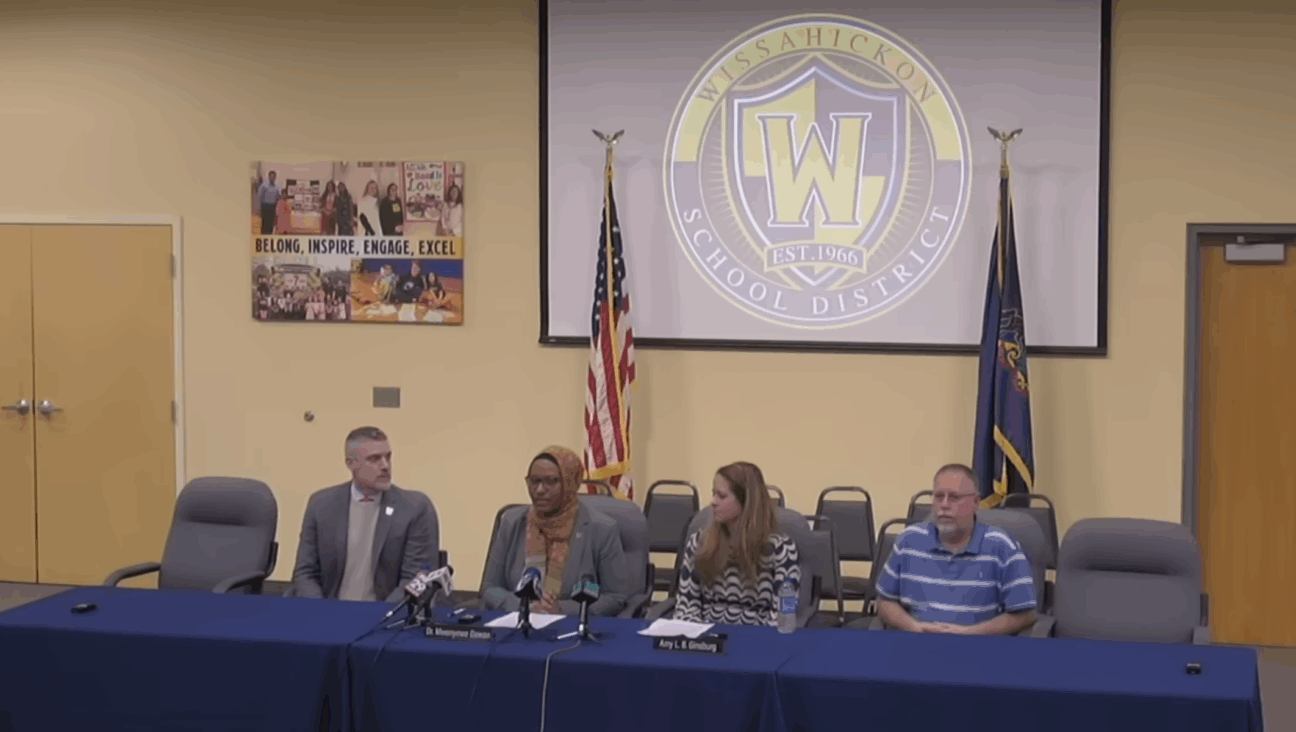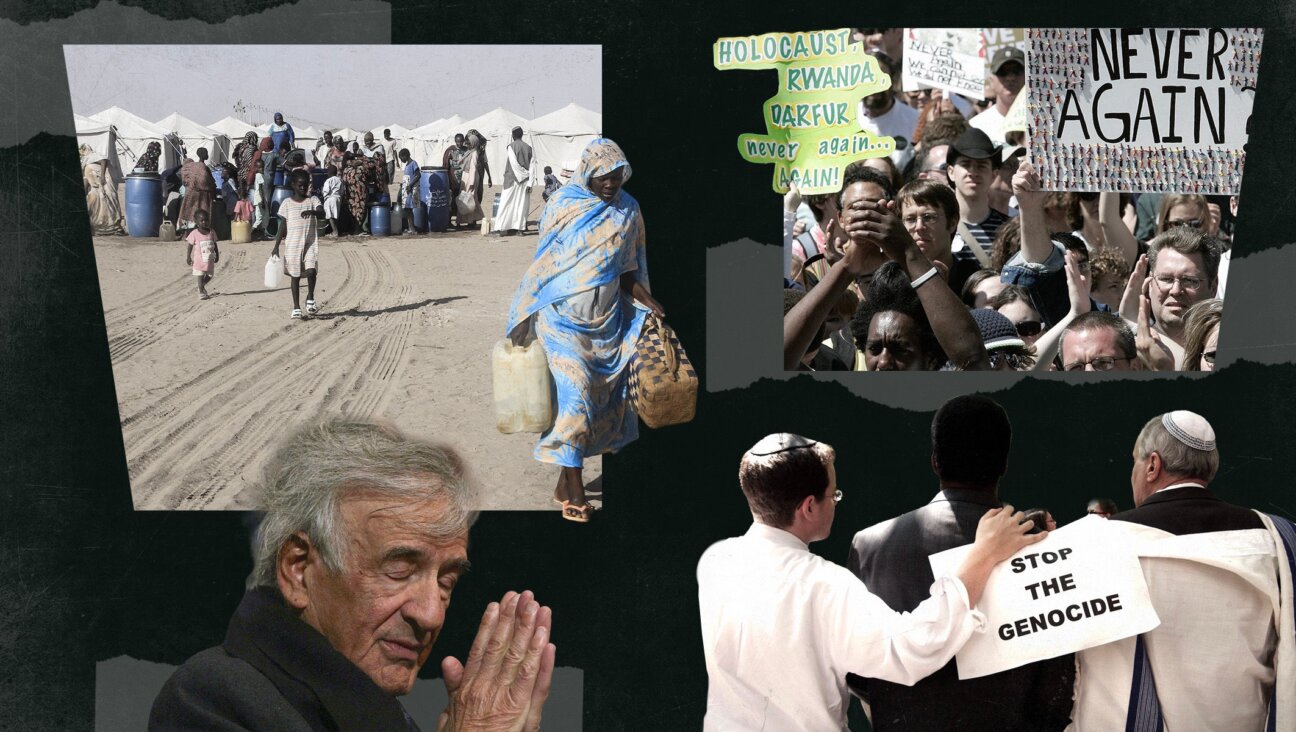Israel Trades Barbs With Iran at U.N. Disarmament Panel
Israel and Iran exchanged sharp criticisms at a meeting of the U.N. General Assembly’s disarmament committee on Friday, accusing each other of being a major destabilizing force in the Middle East.
Israeli Ambassador Alon Roth-Snir told the United Nations’ First Committee that “Iran remains the most significant threat to the security of the Middle East and beyond.”
He reiterated his government’s strong opposition to a historic nuclear agreement between Tehran and six world powers, saying it was “unlikely to stop Iran’s relentless pursuit of a nuclear weapons’ capability.” He accused Tehran of continuing “vehement anti-Semitic rhetoric and threats against Israel.”
Iran U.N. Ambassador Gholamali Khoshrou in turn accused Israel, which is widely presumed to have the region’s only nuclear arsenal, of being “the only impediment … towards realizing a nuclear weapon free zone in the Middle East.”
“Israel continues to block all international and regional efforts to fulfill this goal,” Khoshrou added.
Iran says its nuclear program is purely for civilian purposes, denying allegations from the United States and its allies that it has sought to develop the capability to produce atomic weapons.
Under the July 14 nuclear deal with the United States and five other nations, sanctions on Iran will be lifted in exchange for long-term curbs on Iranian nuclear activity.
Roth-Snir also raised concerns about the use of chemical weapons in Syria’s civil war. He said the removal and destruction of Syria’s declared chemical arsenal was an important achievement. But he cautioned that the government maintained a residual chemical weapons capability while the use of weapons with poison gas in Israel’s neighbor was increasing.
“It is all the more troubling that due to the frequent use of chemical weapons by the Syrian regime, the use of such agents is emulated by terror organizations and has become almost commonplace during the fighting,” Roth-Snir said.
Last month the U.N. Security Council gave a green light for a joint inquiry by the U.N. and the Organization for the Prohibition of Chemical Weapons aimed at determining culpability for toxic gas attacks in Syria. Both the government and rebels have denied using chemical weapons.
Syria agreed to destroy its chemical weapons in 2013 in an effort to avert U.S. military strikes threatened over a sarin gas attack that killed hundreds of civilians. The OPCW has since found chlorine has been “systematically and repeatedly” used as a weapon, though the body is not mandated to lay blame.
A separate U.N. investigation had previously determined that sarin gas was used repeatedly in Syria to deadly effect.Israel and Iran exchanged sharp criticisms at a meeting of the U.N. General Assembly’s disarmament committee on Friday, accusing each other of being a major destabilizing force in the Middle East.
Israeli Ambassador Alon Roth-Snir told the United Nations’ First Committee that “Iran remains the most significant threat to the security of the Middle East and beyond.”
He reiterated his government’s strong opposition to a historic nuclear agreement between Tehran and six world powers, saying it was “unlikely to stop Iran’s relentless pursuit of a nuclear weapons’ capability.” He accused Tehran of continuing “vehement anti-Semitic rhetoric and threats against Israel.”
Iran U.N. Ambassador Gholamali Khoshrou in turn accused Israel, which is widely presumed to have the region’s only nuclear arsenal, of being “the only impediment … towards realizing a nuclear weapon free zone in the Middle East.”
“Israel continues to block all international and regional efforts to fulfill this goal,” Khoshrou added.
Iran says its nuclear program is purely for civilian purposes, denying allegations from the United States and its allies that it has sought to develop the capability to produce atomic weapons.
Under the July 14 nuclear deal with the United States and five other nations, sanctions on Iran will be lifted in exchange for long-term curbs on Iranian nuclear activity.
Roth-Snir also raised concerns about the use of chemical weapons in Syria’s civil war. He said the removal and destruction of Syria’s declared chemical arsenal was an important achievement. But he cautioned that the government maintained a residual chemical weapons capability while the use of weapons with poison gas in Israel’s neighbor was increasing.
“It is all the more troubling that due to the frequent use of chemical weapons by the Syrian regime, the use of such agents is emulated by terror organizations and has become almost commonplace during the fighting,” Roth-Snir said.
Last month the U.N. Security Council gave a green light for a joint inquiry by the U.N. and the Organization for the Prohibition of Chemical Weapons aimed at determining culpability for toxic gas attacks in Syria. Both the government and rebels have denied using chemical weapons.
Syria agreed to destroy its chemical weapons in 2013 in an effort to avert U.S. military strikes threatened over a sarin gas attack that killed hundreds of civilians. The OPCW has since found chlorine has been “systematically and repeatedly” used as a weapon, though the body is not mandated to lay blame.
A separate U.N. investigation had previously determined that sarin gas was used repeatedly in Syria to deadly effect.Israel and Iran exchanged sharp criticisms at a meeting of the U.N. General Assembly’s disarmament committee on Friday, accusing each other of being a major destabilizing force in the Middle East.
Israeli Ambassador Alon Roth-Snir told the United Nations’ First Committee that “Iran remains the most significant threat to the security of the Middle East and beyond.”
He reiterated his government’s strong opposition to a historic nuclear agreement between Tehran and six world powers, saying it was “unlikely to stop Iran’s relentless pursuit of a nuclear weapons’ capability.” He accused Tehran of continuing “vehement anti-Semitic rhetoric and threats against Israel.”
Iran U.N. Ambassador Gholamali Khoshrou in turn accused Israel, which is widely presumed to have the region’s only nuclear arsenal, of being “the only impediment … towards realizing a nuclear weapon free zone in the Middle East.”
“Israel continues to block all international and regional efforts to fulfill this goal,” Khoshrou added.
Iran says its nuclear program is purely for civilian purposes, denying allegations from the United States and its allies that it has sought to develop the capability to produce atomic weapons.
Under the July 14 nuclear deal with the United States and five other nations, sanctions on Iran will be lifted in exchange for long-term curbs on Iranian nuclear activity.
Roth-Snir also raised concerns about the use of chemical weapons in Syria’s civil war. He said the removal and destruction of Syria’s declared chemical arsenal was an important achievement. But he cautioned that the government maintained a residual chemical weapons capability while the use of weapons with poison gas in Israel’s neighbor was increasing.
“It is all the more troubling that due to the frequent use of chemical weapons by the Syrian regime, the use of such agents is emulated by terror organizations and has become almost commonplace during the fighting,” Roth-Snir said.
Last month the U.N. Security Council gave a green light for a joint inquiry by the U.N. and the Organization for the Prohibition of Chemical Weapons aimed at determining culpability for toxic gas attacks in Syria. Both the government and rebels have denied using chemical weapons.
Syria agreed to destroy its chemical weapons in 2013 in an effort to avert U.S. military strikes threatened over a sarin gas attack that killed hundreds of civilians. The OPCW has since found chlorine has been “systematically and repeatedly” used as a weapon, though the body is not mandated to lay blame.
A separate U.N. investigation had previously determined that sarin gas was used repeatedly in Syria to deadly effect.















